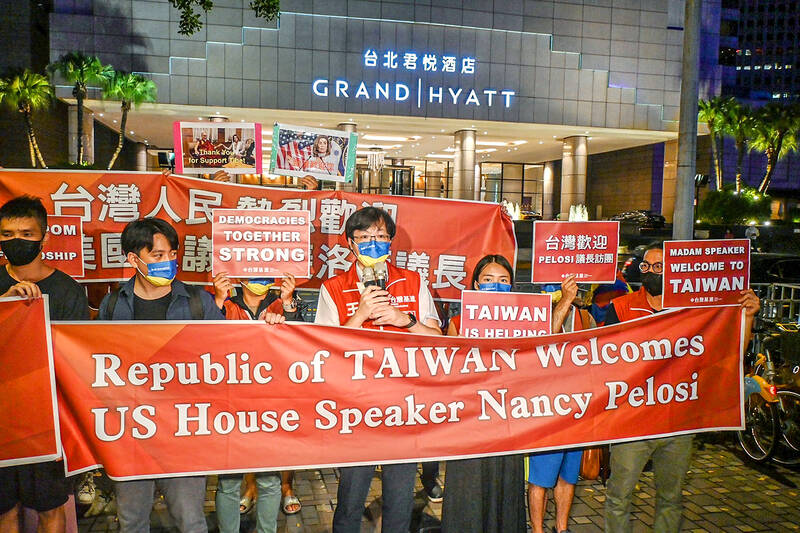This past weekend I spent some time with officials of the Taiwan Statebuilding Party (TSP, 台灣基進). A small, pro-localization party with no elected legislators at the moment, it offers some fresh thinking on public policy issues, and positions itself as a Taiwan-loyal alternative to the ruling Democratic Progressive Party (DPP).
The party came to national attention with two major political events. In the 2020 legislative election TSP candidate Chen Po-wei (陳柏惟) won Taichung District 2 to become the first TSP legislator ever. The victory was notable for Chen’s door-to-door campaigning, and because it was a victory in a district that had long been a fiefdom of Taichung’s powerful Yen (顏) family. Chen won the seat running against then-incumbent Chinese Nationalist Party (KMT) legislator Yen Kuan-heng (顏寬恒), the son of former KMT and Non-Partisan Solidarity Union politician Yen Ching-piao (顏清標).
However, taking advantage of Taiwan’s easy recall rules, the KMT forced a recall election, which Chen lost in October 2021, despite support from the DPP. This was in part a KMT tit-for-tat response to the June 2020 recall of Kaohsiung KMT mayor Han Kuo-yu (韓國瑜), in which TSP politicians had been prominent.

Photo courtesy of Wikimedia Commons
The genesis of the Statebuilding Party lies in the first decade of the 2000s, when the individuals who later became its leadership began thinking about Taiwan’s politics and its deep structural issues. In a sense, Party Chairman Wang Sing-huan (王興煥) told me in an interview last week, they were inspired by the New Party, the purists who had left the KMT because it wasn’t pro-China enough. Just as the New Party represented an alternative to the KMT, the TSP could play a mirror image role with the DPP.
DEMOCRACY PARADOX
The problem, Wang explained, is that after 30 years Taiwan’s democracy remains weak and incomplete. A paradox of local democracy, he said, is that if the KMT wins democracy is finished.

Photo courtesy of Wikimedia Commons
“Democracy can thus be used to end democracy,” he said, adding that the nation cannot, through democracy, become part of China.
There is little support for annexing Taiwan to China, he said, yet the pro-China parties have widespread support. This means that supporting a “healthy democracy” in Taiwan by voting KMT to counterbalance the DPP is actually opposing democracy. The existence of a Taiwan-loyal opposition in the form of the TSP offers a way out of this dilemma.
The defeat of Tsai Ing-wen (蔡英文) in the 2012 presidential election spurred the creation of the TSP, which was formally established in 2013. The TSP sees itself as a Taiwan-loyal opposition, Wang said. No party can rule forever — as this election shows.
“We need an opposition that is pro-independence, not [Taiwan People’s Party presidential candidate] Ko Wen-je (柯文哲),” Wang said.
“Why split the Green vote?” Wang asked, anticipating my obvious question.
First, the TSP can play a supervisory role. Second, a Taiwan-centered party is necessary for that time when the DPP is voted out of office, instead of merely flipping to the KMT.
Another role of the TSP is saying the things out loud that the DPP can’t. Wang said that many people within the DPP have told the TSP that “we support you” but they cannot say that out loud.
IMMIGRATION
I asked about immigration policy, receiving general but sad laughter.
“Nobody has an immigration policy,” said Shih Wei-chu (史惟筑), first on the party list for legislator-at-large.
Like most officials I have talked to, they were well aware of the issues foreigners face, such as spouses who cannot work if they are here on a spouse visa. Wang argued that immigrants from countries other than the People’s Republic of China (PRC) should have a normal path to citizenship.
“We are an ocean state, we should be open,” he said.
He added that after immigrating, new citizens will face discrimination, a problem that must be addressed.
“Our nationalism should not be based only on language or culture, but social democracy,” he said.
He said that PRC nationals cannot follow the same path to citizenship as others, because the PRC is not free, and they will still be supervised by the PRC state. PRC nationals will come because of the language affinity, he said, but their presence would have to be strictly limited. Otherwise Taiwan will be absorbed.
HOUSING CRISIS
As I have noted on many occasions, the housing crisis in Taiwan is actually multiple crises occurring at the same time: high prices, rising rents, lack of affordable housing for young families and low taxes that leave local governments starved of tax revenue.
Shih said that their policies are inspired by France’s housing policies. They also appear to be ahead of the other parties in that the TSP approach recognizes the increasing importance of the rental market in providing housing. The major parties sadly appear to interpret housing policy as a home ownership issue.
In the TSP view, rentals should be well-regulated, safe and transparent. The word “transparent” came up repeatedly. Taiwan needs a more “socially-oriented” view. In France, Shih pointed out, rental increases were held to 3.5 percent this year. Taiwan has done nothing similar. The party also wants to address Taiwan’s problems of discrimination, not only with foreigners but also with the aged, who often have trouble finding rental units, since landlords fear that if they die in the rental, it will become a stigmatized property and lose much of its value.
Another issue is windfall gains from urban renewal programs.
“We would like to see those taxed,” Shih said.
We fell in to talking about president Tsai again.
“Tsai has mentioned ‘ROC’ [Republic of China] too much,” Wang said, “and ‘Taiwan’ too little. This has caused a shift in local identities.”
Wang said that he would like to see “Taiwan” used more often.
Wang also addressed the commonly-heard fallacy that Taiwan’s democracy is what makes it different from China. “If China becomes a democracy, will Taiwan then be swallowed?”
In a Facebook posting earlier this month, Wang laid out what “Taiwan independence” means: “[I]n addition to legal and constitutional issues, a new republic with Taiwan as the main body also needs a cultural project to form a national image.”
Such a culture, he described in the post, should be defined by “localism” not by “originalism,” the source of the original transmission.
“Just like the Japanese tea ceremony is Japanese culture full of Japaneseness, not the Chinese Song Dynasty culture.”
With the breakup of the New Power Party (NPP), many look to the TSP to step into the NPP’s role of progressive alternative party.
Someone should.
Notes from Central Taiwan is a column written by long-term resident Michael Turton, who provides incisive commentary informed by three decades of living in and writing about his adoptive country. The views expressed here are his own.

The 2018 nine-in-one local elections were a wild ride that no one saw coming. Entering that year, the Chinese Nationalist Party (KMT) was demoralized and in disarray — and fearing an existential crisis. By the end of the year, the party was riding high and swept most of the country in a landslide, including toppling the Democratic Progressive Party (DPP) in their Kaohsiung stronghold. Could something like that happen again on the DPP side in this year’s nine-in-one elections? The short answer is not exactly; the conditions were very specific. However, it does illustrate how swiftly every assumption early in an

Francis William White, an Englishman who late in the 1860s served as Commissioner of the Imperial Customs Service in Tainan, published the tale of a jaunt he took one winter in 1868: A visit to the interior of south Formosa (1870). White’s journey took him into the mountains, where he mused on the difficult terrain and the ease with which his little group could be ambushed in the crags and dense vegetation. At one point he stays at the house of a local near a stream on the border of indigenous territory: “Their matchlocks, which were kept in excellent order,

Jan. 19 to Jan. 25 In 1933, an all-star team of musicians and lyricists began shaping a new sound. The person who brought them together was Chen Chun-yu (陳君玉), head of Columbia Records’ arts department. Tasked with creating Taiwanese “pop music,” they released hit after hit that year, with Chen contributing lyrics to several of the songs himself. Many figures from that group, including composer Teng Yu-hsien (鄧雨賢), vocalist Chun-chun (純純, Sun-sun in Taiwanese) and lyricist Lee Lin-chiu (李臨秋) remain well-known today, particularly for the famous classic Longing for the Spring Breeze (望春風). Chen, however, is not a name

There is no question that Tyrannosaurus rex got big. In fact, this fearsome dinosaur may have been Earth’s most massive land predator of all time. But the question of how quickly T. rex achieved its maximum size has been a matter of debate. A new study examining bone tissue microstructure in the leg bones of 17 fossil specimens concludes that Tyrannosaurus took about 40 years to reach its maximum size of roughly 8 tons, some 15 years more than previously estimated. As part of the study, the researchers identified previously unknown growth marks in these bones that could be seen only